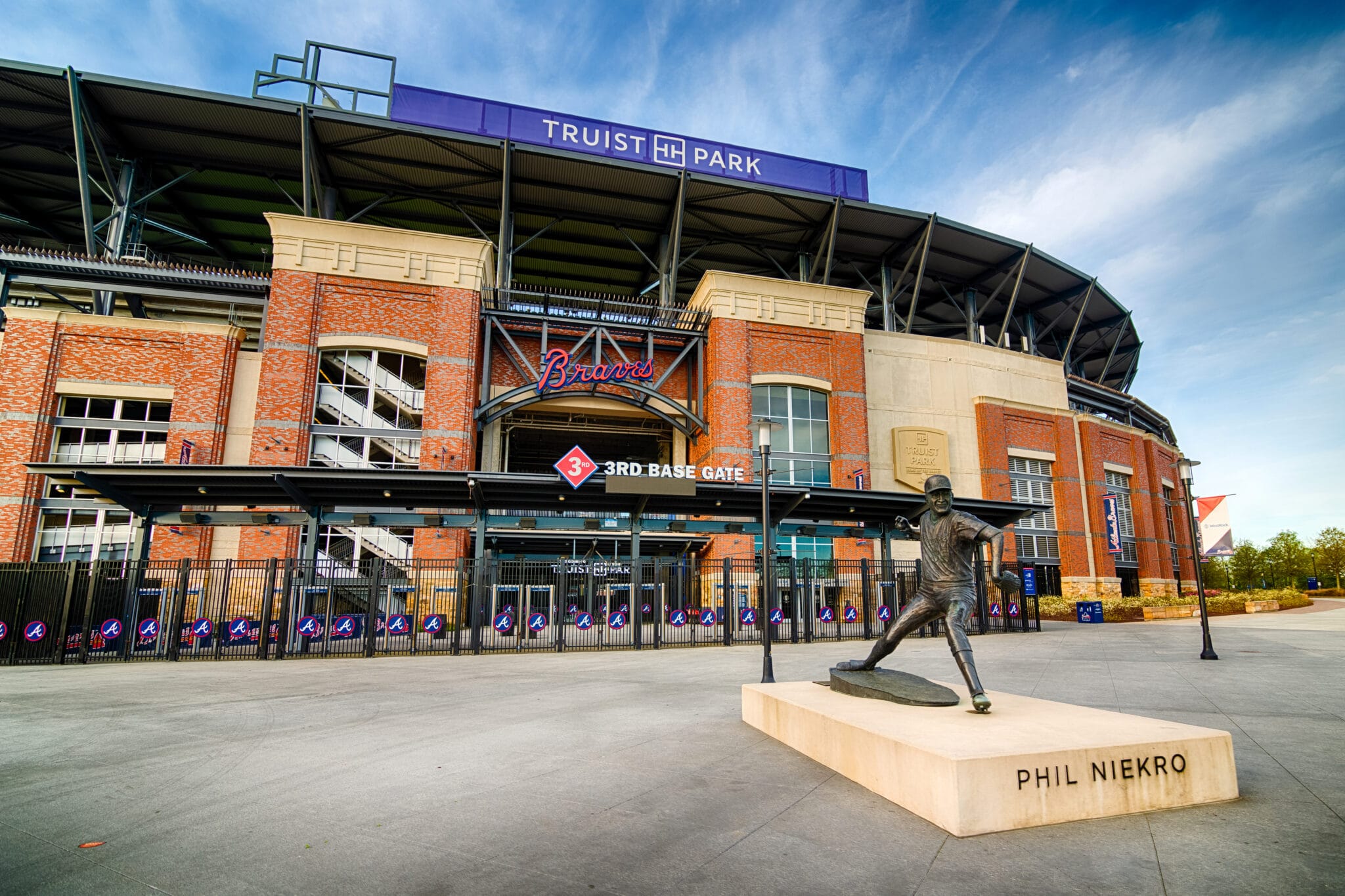(The Center Square) – The Atlanta Braves’ Truist Park has not increased hotel stays in Cobb County, according to a paper from two leading sports economists.
The paper pushes back on claims that building the stadium with public funding would lead to 100,000 to 300,000 additional hotel room nights per year.
The park opened in April 2017.
“Our findings are consistent with existing research that indicates devoting public funding to a sports venue in the hope of generating sufficient returns through increased economic activity from imported visitor spending is not a sound justification for taxpayer support,” said the paper from J.C. Bradbury of Kennesaw State University and E. Frank Stephenson of Berry College. “Furthermore, though the interjurisdictional move within the same metropolitan area may have attracted some imported commerce from neighboring counties, any visitor effects would likely be less pronounced as visitors can choose to stay in non-Cobb jurisdictions – particularly in Fulton County, where downtown Atlanta is located.”
A previous peer-reviewed paper from Bradbury showed that Truist Park costs Cobb County taxpayers about $15 million a year with that ongoing cost being around $50 per Cobb County household per year.
Stephenson recently completed a paper showing that the NFL Draft did not lead to the claimed number of visitors for host cities.
Truist Park has been held up as a model for modern sports stadiums, including when it recently hosted the Major League Baseball All-Star Game.
The park has boosted profit for the Braves and the Atlanta Braves Holdings, the Braves’ owner after it split off from Liberty Media.
But the $392 million in public cost to build the stadium from Cobb County, the Cumberland Improvement District and the Exhibit Hall Authority have led to the county taxpayer losses.
The stadium debt is paid for through a county hotel-motel tax, countywide rental car tax and an additional special service district 3% hotel room tax and 3% property tax.
🛑 🛑 🛑
Before You Dismiss This Article…
We live in a time when information feels overwhelming, but here’s what hasn’t changed: facts exist whether they comfort us or not.
When A&W launched their third-pound burger to compete with McDonald’s Quarter Pounder in the 1980s, it failed spectacularly. Not because it tasted worse, but because customers thought 1/3 was smaller than 1/4. If basic math can trip us up, imagine how easily we can misread complex news.
The press isn’t against you when it reports something you don’t want to hear. Reporters are thermometers, not the fever itself. They’re telling you what verified sources are saying, not taking sides. Good reporting should challenge you — that’s literally the job.
Next time a story makes you angry, pause. Ask yourself: What evidence backs this up? Am I reacting with my brain or my gut? What would actually change my mind? And most importantly, am I assuming bias just because the story doesn’t match what I hoped to hear.
Smart readers choose verified information over their own comfort zone.


